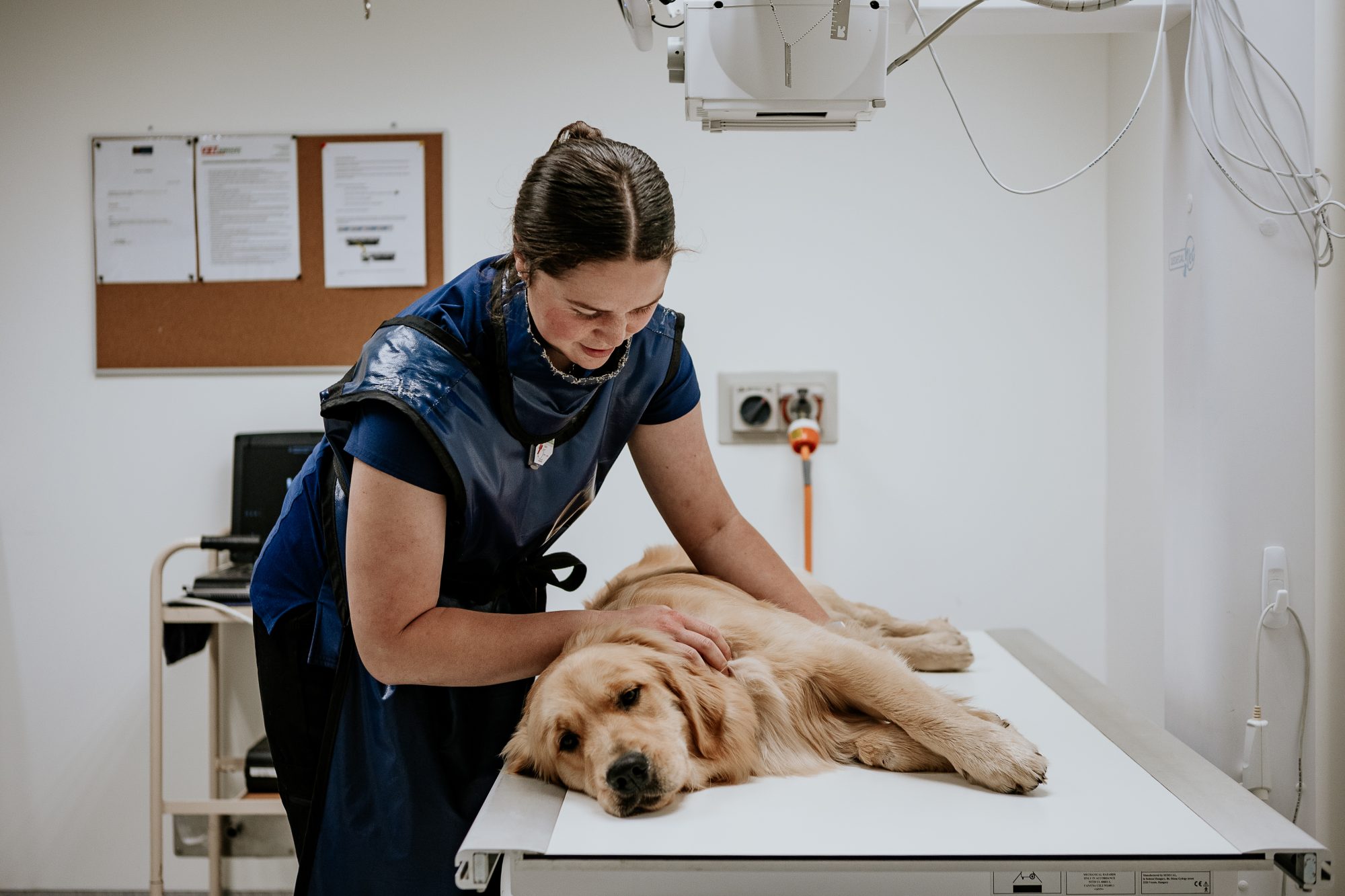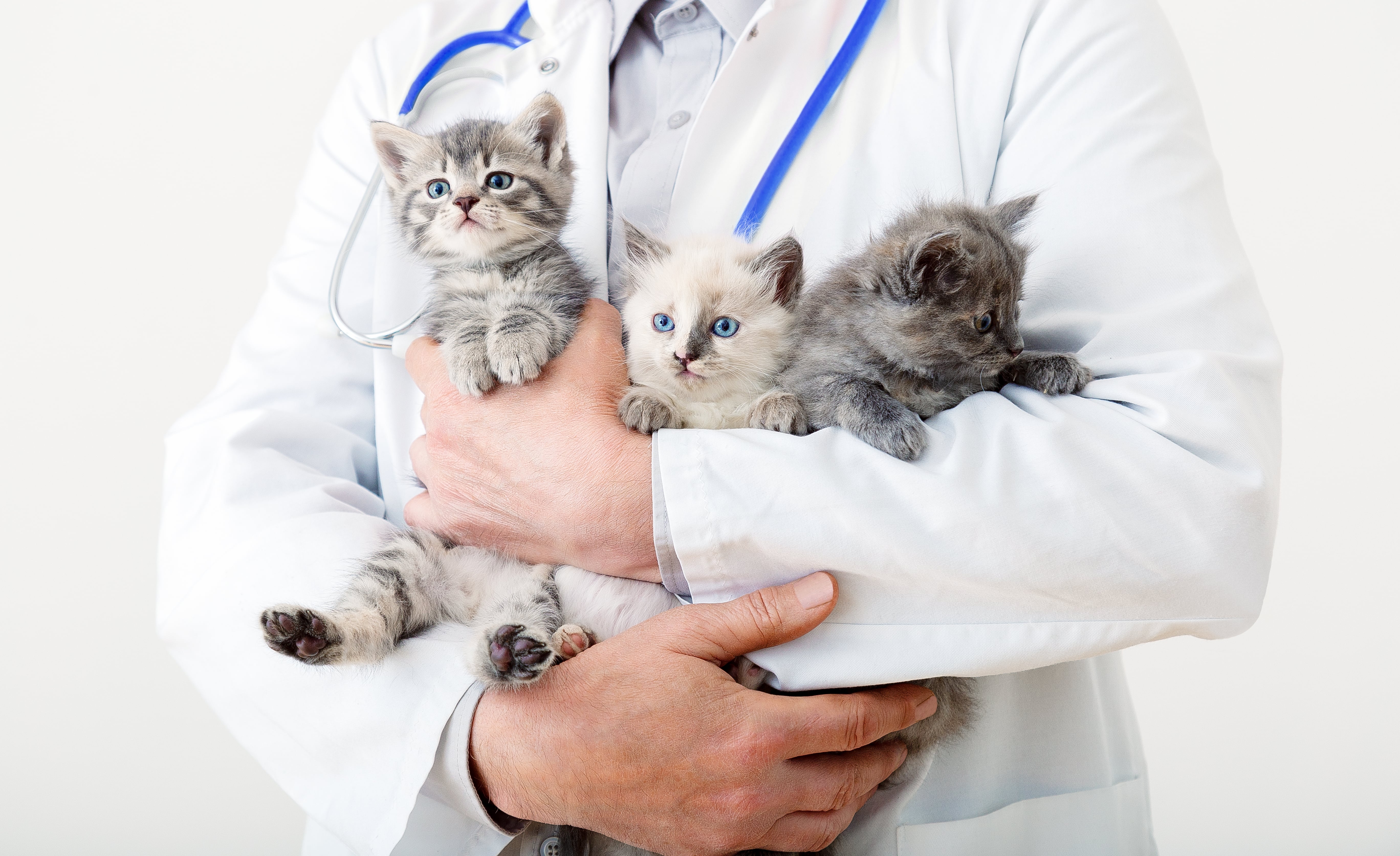Exactly How a Veterinary Specialty Hospital Can Heal Your Pet's Ailments With Advanced Techniques
Veterinary specialty hospitals play an essential role in dealing with intricate health problems in pets. They utilize innovative methods and innovations that enhance medical diagnosis and treatment. With accessibility to specialized solutions, pet dog owners can find tailored options for their animals' disorders. This raises essential questions concerning the particular methods used and the benefits they supply. Comprehending these aspects can significantly impact a family pet's healing trip.
Recognizing the Function of Veterinary Specialty Hospitals
Key care vets supply necessary solutions for pet wellness, vet specialty hospitals play an essential duty in dealing with complicated clinical problems that call for sophisticated diagnostics and treatment. These facilities are furnished with specialized technology and knowledgeable specialists that concentrate on specific locations of vet medication, such as cardiology, neurology, and oncology.
Veterinary specialty hospitals help with a collective strategy, commonly operating in conjunction with a family pet's primary veterinarian to create complete care strategies. They give accessibility to sophisticated imaging techniques, such as MRI and CT checks, which are not generally offered in common clinics - Learn More. On top of that, these hospitals supply critical care unit for critically unwell animals, guaranteeing round-the-clock monitoring and support
Specialized Solutions Supplied by Veterinary Experts
Veterinary professionals provide vital services that improve pet health care, especially via advanced diagnostic imaging techniques. These devices allow precise analyses of intricate clinical problems, causing more reliable targeted therapy plans. By integrating these specialized solutions, vet hospitals can considerably boost patient outcomes and overall well-being.
Advanced Diagnostic Imaging
Advanced analysis imaging plays a necessary function in contemporary vet medication, allowing experts to get in-depth understandings into an animal's health and wellness. Strategies such as X-rays, ultrasound, computed tomography (CT), and magnetic resonance imaging (MRI) allow vets to picture inner structures without intrusive treatments. These advanced imaging methods aid in diagnosing a range of problems, from cracks and tumors to organ problems. By giving clear images, they enhance the accuracy of evaluations, which is vital for reliable treatment planning. Additionally, specialized vet radiologists analyze these photos, ensuring that refined problems are not ignored. Ultimately, advanced diagnostic imaging is instrumental in supplying substantial treatment, as it enables early detection and treatment in a family pet's clinical concerns.
Targeted Treatment Plans
Targeted treatment plans are essential for dealing with the specific wellness needs of animals, guaranteeing that each animal receives personalized treatment tailored to its unique condition. Veterinary specialists establish these plans based on comprehensive evaluations, including innovative diagnostic imaging and research laboratory examinations. By concentrating on the individual pet dog's medical diagnosis, age, type, and way of living, specialists can prescribe reliable therapies, varying from drug changes to medical treatments. These plans also incorporate follow-up care and checking to track the pet's progression and make required modifications. This technique advertises excellent results and boosts the overall top quality of life for family pets encountering intricate wellness difficulties. Eventually, targeted therapy strategies represent a dedication to providing the greatest criterion of veterinary care.
Advanced Diagnostic Techniques for Accurate Diagnoses
As animals deal with progressively intricate wellness obstacles, the integration of sophisticated analysis techniques has ended up being vital for attaining exact diagnoses. Veterinary specialty hospitals utilize cutting edge imaging technologies, such as MRI and CT scans, to picture internal structures with exceptional clarity. These modalities permit veterinarians to identify problems that may not show up through traditional techniques.
In enhancement to imaging, progressed research laboratory examinations, consisting of genetic and biomarker evaluations, supply important insights right into hidden conditions. These examinations make it possible for vets to detect conditions at earlier stages, facilitating timely treatment (Learn More). In addition, the usage of endoscopy permits for straight visualization of inner organs, aiding in the medical diagnosis of intestinal and respiratory concerns
Ingenious Treatment Alternatives for Complex Conditions
Cutting-edge treatment options for intricate problems in family pets have actually arised as a critical focus within vet specialty hospitals. Using advanced analysis devices, these facilities improve their capability to determine issues precisely and tailor proper treatments. In addition, the application of minimally intrusive procedures and progressed rehabilitation methods supplies family pets a much better possibility at recuperation with decreased pain.
Cutting-edge Diagnostic Devices
While the landscape of veterinary medicine remains to progress, innovative diagnostic devices have actually become crucial assets for addressing intricate problems in pets. These sophisticated innovations, including electronic imaging, ultrasound, and molecular diagnostics, enable veterinarians to acquire specific information about a family pet's health and wellness condition swiftly. High-resolution imaging strategies can reveal intricate details of inner structures, making it possible for precise assessments of illness or injuries. In addition, hereditary testing provides insights into hereditary conditions, directing customized treatment strategies. By leveraging these cutting-edge analysis devices, vet specialty hospitals can improve their ability to identify disorders that may have previously gone unnoticed. Eventually, these advancements add to boosted outcomes and improve the total quality of treatment given to beloved animals.
Minimally Invasive Treatments
Innovations in vet medication have led the way for minimally intrusive treatments, which provide new therapy choices for intricate conditions in pet dogs. These ingenious strategies, such Learn More as laparoscopy and endoscopy, enable veterinarians to carry out surgical procedures with smaller cuts, lowering injury and recuperation time. By using specialized cams and tools, vets can identify and treat issues like lumps, intestinal disorders, and joint troubles with precision. This method reduces pain and leads to quicker healing, enabling pets to return to their typical activities faster. Vet services. In addition, minimally intrusive procedures usually lead to less scarring and a lower risk of problems. As vet specialty hospitals embrace these innovative techniques, pet proprietors can really feel extra confident in their pet dogs' care and overall wellness
Advanced Rehab Techniques
As veterinary medicine advances, advanced rehabilitation methods are becoming essential for handling intricate conditions in family pets. These techniques include a series of innovative therapy choices, including hydrotherapy, laser therapy, and physical treatment. Hydrotherapy uses water resistance to improve mobility and enhance muscular tissues, valuable for pets recovering from surgery or injury. Laser therapy advertises recovery by reducing inflammation and pain, promoting quicker recuperation times. Physical treatment utilizes targeted exercises to enhance toughness and versatility, tailored per pet dog's specific needs. Furthermore, methods like acupuncture and chiropractic care adjustments can better support recovery by easing discomfort and enhancing total well-being. Veterinary specialty hospitals are significantly incorporating these methods, ensuring pets receive detailed care that attends to both psychological and physical recuperation, ultimately improving their quality of life.
The Significance of a Multidisciplinary Method
A multidisciplinary strategy in vet treatment significantly boosts the treatment results for pet dogs, as it integrates competence from different specialties to address intricate wellness concerns. This collaborative approach involves vets, professionals, service technicians, and support team collaborating to create detailed treatment strategies tailored per animal's special demands (Veterinary). By incorporating expertise from fields such as surgical treatment, interior medicine, oncology, and recovery, vets can determine hidden problems that may or else go undetected
Moreover, this method cultivates interaction amongst employee, making certain that all facets of a family pet's health and wellness are taken into consideration. A pet recuperating from surgical treatment may profit from input from both a cosmetic surgeon and a rehab expert, leading to a more effective recuperation process. Eventually, a multidisciplinary technique not only boosts the quality of care yet likewise boosts the total health of pets, offering them with the ideal opportunity for a successful healing and long-lasting wellness.
Cutting-Edge Modern Technology in Veterinary Medicine

With the rapid advancement of technology, vet medicine has actually embraced innovative devices and methods that greatly enhance diagnostics and treatment choices for family pets. Advanced imaging innovations, such as MRI and CT scans, permit vets to envision interior structures with extraordinary quality, helping in exact medical diagnoses. On top of that, minimally invasive surgical techniques, sustained by robotic-assisted systems, enhance accuracy and minimize healing times for family pets.
Telemedicine has likewise arised as an important source, allowing veterinarians to seek advice from pet proprietors remotely, thus promoting prompt treatments. Furthermore, the assimilation of fabricated intelligence in analyzing clinical data adds to a lot more effective therapy strategies tailored to individual needs. Innovative lab equipment permits for quick blood evaluation and virus discovery, promoting punctual clinical actions. As veterinary specialty hospitals proceed to include these developments, they not just improve the quality of treatment yet likewise significantly improve the total wellness of family pets.
Success Stories: Real-Life Examples of Animal Recuperation
Various heartfelt success tales show the exceptional healings of family pets dealt with at veterinary specialty hospitals. One such case included Bella, a Golden Retriever diagnosed with a serious orthopedic problem. After advanced surgical treatment and rehab, Bella was not just able to stroll again but additionally to run happily in the park, much to her owners' joy.
One more inspiring story functions Max, a feline with chronic kidney illness. With specialized dietary administration and ingenious treatments, Max's problem supported, allowing him to restore his energy and appetite. His owners were pleased to see him return to his lively self.

Regularly Asked Concerns
What Should I Expect Throughout My Pet's Specialty Examination?
During a specialty assessment, family pet owners can anticipate a comprehensive exam, detailed case history discussions, analysis examinations, and customized treatment choices. The vet professional will certainly give understandings and suggestions for the animal's details wellness demands.
How Can I Find a Veterinary Specialty Hospital Near Me?
To locate a vet specialty hospital nearby, one can make use of on the internet online search engine, check neighborhood directories, or look for recommendations from main veterinarians. Furthermore, pet dog owner online forums can provide important insights and experiences about neighboring centers.
Are Specialty Solutions Covered by Animal Insurance Policy?
Specialty solutions may be covered by pet insurance, however protection varies by policy. Proprietors must thoroughly review their insurance plan details and consult their service provider to comprehend the degree of coverage for specialty vet services.

The Length Of Time Will My Pet's Treatment Take?
The duration of a pet's therapy can vary significantly, commonly varying from a couple of days to a number of weeks - Vet services. Aspects influencing this timeline consist of the particular problem, therapy type, and the pet dog's overall health and wellness and feedback
What Are the Prices Associated With Specialty Veterinary Care?
The costs related to specialty vet treatment can differ commonly, normally ranging from hundreds to thousands of bucks. Aspects affecting these expenditures include the complexity of the condition, required therapies, and diagnostic treatments required for efficient treatment.
Veterinary specialty hospitals play a crucial duty in dealing with complex health and wellness problems in animals. Primary care veterinarians provide essential solutions for pet wellness, vet specialty hospitals play a critical function in addressing complex clinical conditions that call for advanced diagnostics and treatment. Veterinary specialty hospitals help with a collective method, usually functioning in combination with a pet's main veterinarian to develop complete care strategies. Innovative treatment alternatives for intricate problems in family pets have emerged as a critical emphasis within vet specialty hospitals. A multidisciplinary approach in vet care significantly improves the treatment outcomes for family pets, as it incorporates expertise from various specialties to deal with complex wellness concerns.